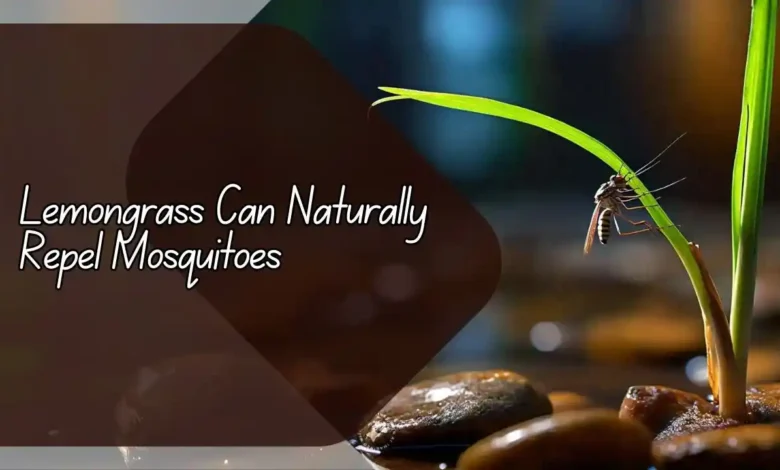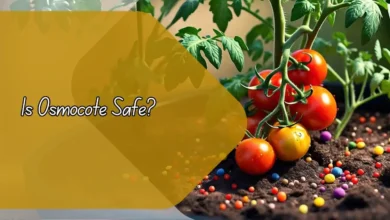
How Lemongrass Can Naturally Repel Mosquitoes
In this article, we will explore how lemongrass can naturally repel mosquitoes in your garden. Lemongrass has been used for centuries in traditional medicine and culinary practices, and its natural mosquito-repelling properties make it a great addition to any outdoor space. By planting lemongrass in your garden, you can help keep mosquitoes at bay without the need for chemical insecticides.
How does lemongrass repel mosquitoes?
Lemongrass contains citronella, a natural oil that is commonly used in mosquito repellents. Citronella has a strong citrus scent that masks the smells that attract mosquitoes, making it difficult for them to locate their prey.

When you plant lemongrass in your garden, the scent of citronella acts as a natural barrier, deterring mosquitoes from entering your outdoor space.
Additionally, lemongrass contains geraniol, another compound known for its mosquito-repelling properties. Geraniol disrupts the mosquito’s ability to detect carbon dioxide and octanol, two chemicals that attract mosquitoes to their hosts.
By planting lemongrass in your garden, you can create a natural buffer zone that helps keep these pesky insects away.
How to plant and care for lemongrass?
To plant lemongrass in your garden, you will need a sunny spot with well-drained soil. Lemongrass can be grown from seeds or by dividing existing plants.
If you are starting from seeds, sow them in a pot indoors and transfer them to the garden once they have sprouted. Make sure to water your lemongrass regularly and fertilize it with a balanced fertilizer to encourage healthy growth.
When caring for lemongrass, trim the leaves regularly to promote new growth and prevent the plant from becoming overcrowded.
You can also repel mosquitoes by crushing a few leaves and rubbing them on your skin before spending time outdoors. This will release the citronella scent and provide additional protection against mosquitoes.

Can lemongrass be used in cooking?
Yes, lemongrass is commonly used in Asian cuisine for its unique citrus flavor. The stalks of lemongrass can be chopped, bruised, or blended into a paste to add flavor to soups, curries, stir-fries, and marinades. Lemongrass pairs well with garlic, ginger, and chili peppers, creating delicious dishes that are both fragrant and flavorful.
When using lemongrass in cooking, remove the tough outer layers of the stalk and chop the tender inner core into small pieces. You can also infuse lemongrass into teas, cocktails, and desserts for a refreshing twist on traditional recipes.

Is lemongrass easy to grow in containers?
Yes, lemongrass can be easily grown in containers, making it a versatile plant for small gardens, patios, and balconies.
Choose a large pot with drainage holes to prevent waterlogging and use a well-draining potting mix to promote healthy root growth. Place the container in a sunny location and water the lemongrass regularly to keep the soil moist.
When growing lemongrass in containers, remember to repot the plant every 1-2 years to refresh the soil and provide room for new growth. You can also bring your lemongrass indoors during the winter months to protect it from frost and cold temperatures.
Does lemongrass attract any beneficial insects?
Yes, lemongrass can attract beneficial insects such as bees, butterflies, and ladybugs to your garden. These pollinators help promote plant growth and biodiversity, creating a balanced ecosystem that supports plant health.
By planting lemongrass in your garden, you can attract these beneficial insects and create a thriving environment for both your plants and local wildlife.
However, it’s essential to monitor the presence of pests and diseases in your garden to prevent any negative impact on your plants. Regularly inspect your lemongrass for signs of infestation and treat any issues promptly to maintain a healthy garden ecosystem.

Conclusion
Overall, lemongrass is a versatile plant that not only adds flavor to your cooking but also helps naturally repel mosquitoes in your garden.
By harnessing the mosquito-repelling properties of citronella and geraniol, lemongrass creates a fragrant barrier that deters these pesky insects without the need for harmful chemicals.
Whether you plant lemongrass in your garden bed or in containers on your patio, this plant can thrive in various conditions and provide essential benefits to your outdoor space. Consider adding lemongrass to your garden to enjoy its culinary delights and mosquito-repelling properties throughout the year.
FAQs
Can lemongrass be grown indoors?
Yes, lemongrass can be grown indoors in a sunny location with adequate sunlight. Place the plant near a window or under a grow light to ensure that it receives enough light for healthy growth. Water the lemongrass regularly and monitor the soil moisture to prevent overwatering or underwatering.
How often should lemongrass be fertilized?
Lemongrass should be fertilized every 6-8 weeks with a balanced fertilizer to promote healthy growth. Choose a fertilizer that is rich in nitrogen, phosphorus, and potassium to support the plant’s nutrient needs. Avoid overfertilizing lemongrass, as this can lead to nutrient imbalances and affect the plant’s overall health.
Does lemongrass have any medicinal properties?
Yes, lemongrass has been used in traditional medicine for its antibacterial, antifungal, and anti-inflammatory properties. The essential oils extracted from lemongrass have been used to treat a variety of ailments, including digestive issues, muscle pain, and respiratory conditions. Consult with a healthcare professional before using lemongrass for medicinal purposes.
How can I protect my lemongrass from pests?
To protect your lemongrass from pests, regularly inspect the plant for signs of infestation, such as yellowing leaves, holes in the foliage, or sticky residue. Use organic insecticidal soap or neem oil to treat common pests like aphids, mealybugs, and spider mites. Avoid using chemical pesticides that can harm beneficial insects and pollinators in your garden.
Can I propagate lemongrass from cuttings?
Yes, lemongrass can be propagated from cuttings by rooting the stalks in water or moist soil. Select a healthy lemongrass stalk and cut it into 4-6-inch sections. Place the cuttings in a jar of water or pot of soil, ensuring that the nodes are submerged. Keep the cuttings in a warm, humid environment until roots develop, then transplant them into pots or the garden.








